A change is coming. Over the past few years, Latino artists shaping the musical landscape have been looking directly into their cultural ancestry, reclaiming history and traditions lost to time and erasure. Musically speaking, the sounds of the pre- and post-colonized world are becoming more and more intertwined. But Caribbean music has always been a union of indigenous and African influences, breeding a wildly impactful playground of popular music. For Riccie Oriach, an emerging mad scientist in the Dominican indie scene, blurring the lines of genre allows him to celebrate the musical mélange of the region while also defying strict categorization.
Oriach is a 27-year-old singer-songwriter, multi-instrumentalist, and composer based in Santo Domingo. At the age of 14, the young musician began throwing punk and rock shows at his house, and over the last six years, he’s assembled and operated a home studio where he grooms local musicians while meticulously fine-tuning his own sound. On his debut EP Viaje al Infinito, out now, Oriach unveils six eclectic tracks that paint a collage of Caribbean identity, embracing the breadth of Dominican musical heritage and infusing it with sounds from beyond.
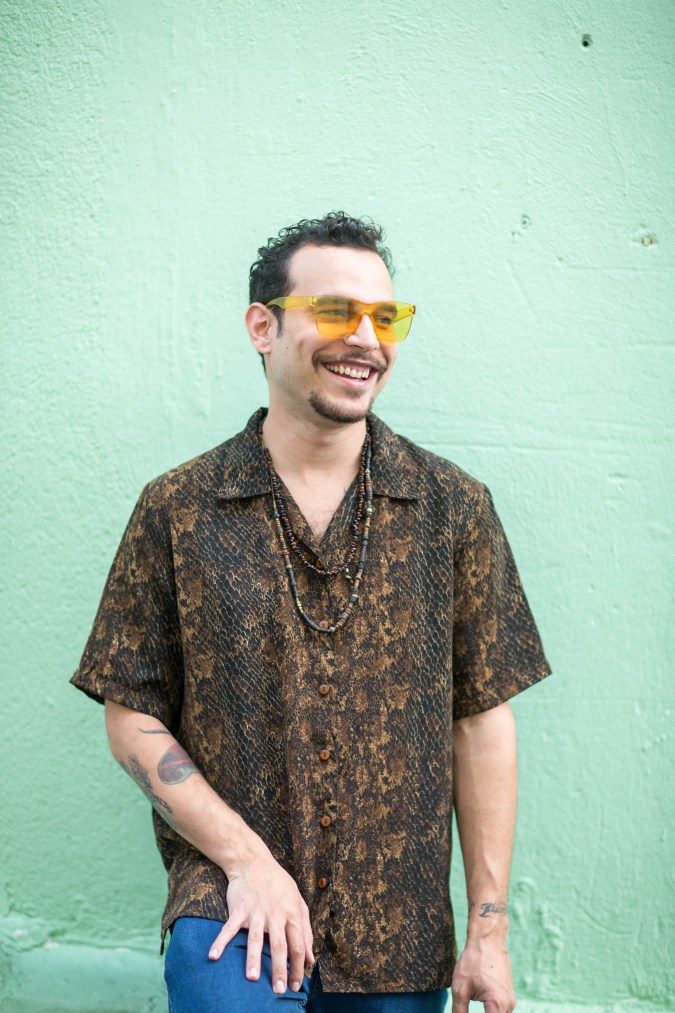
“Working on other people’s music helped me figure out my own tastes,” he tells Remezcla in an interview. “I feel like today I have a very acute ear for what I want my music to sound like. My producer [Federico López] and I are both perfectionists, so we spent a year working on this record. Even two days before the CDs went into production, I was still tinkering with it.”
Oriach made his first splash in 2015, when on a birthday dare he recorded and uploaded an acoustic version of his song “Prima Tecata,” a satirical and loving study of day-to-day barrio life. According to Oriach, “the song describes a local environment. I wasn’t really thinking. I just grabbed a guitar and started riffing a lo loco, and that’s what came out. It wasn’t until later that I realized there was a message there, so I worked on polishing the song and put it online.”
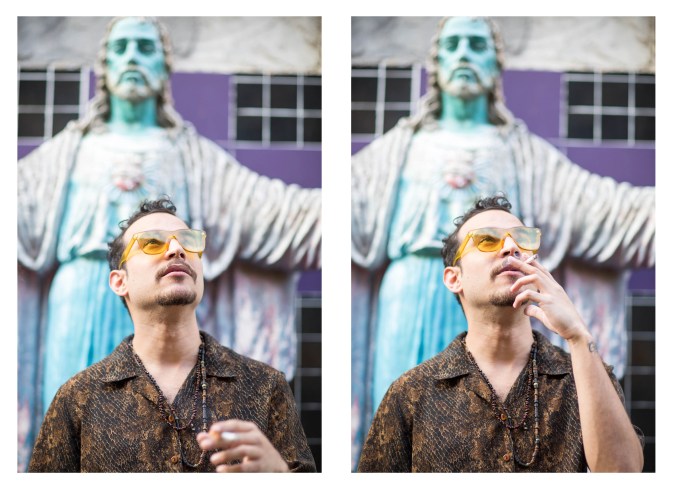
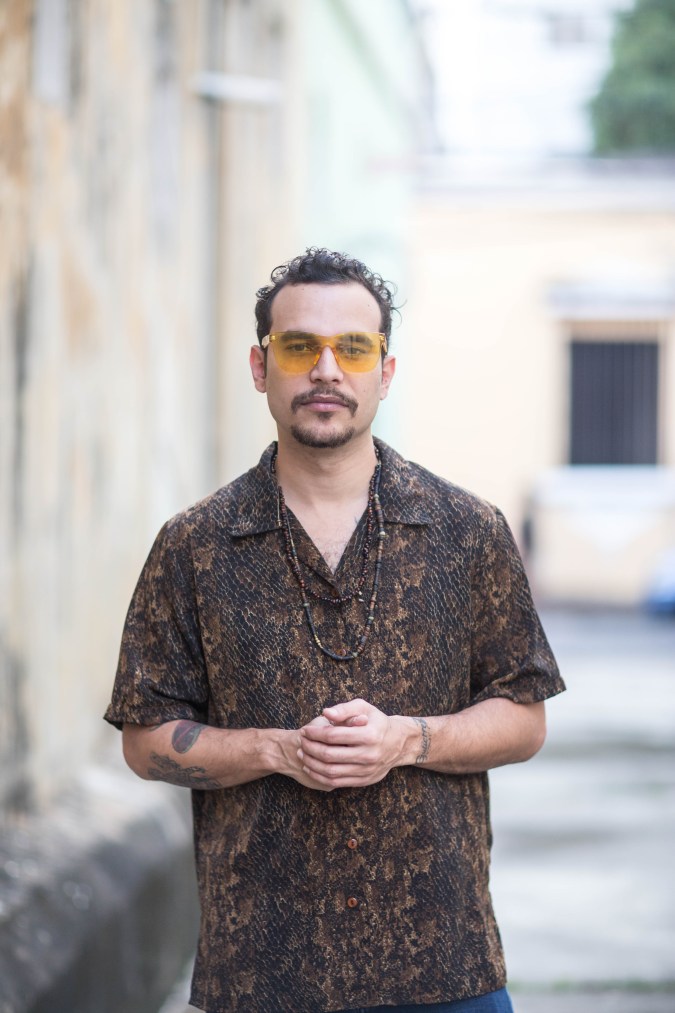
Ahead of Viaje al Infinito, a string of singles defined Oriach as an experimentalist, gaining attention for his collision of modern and traditional rhythms; he was described as the “lost child of Rita Indiana and Luis Días” by local blog Discolai. The studio version of “Prima Tecata” serves as a prime example, melding merengue, reggae, and funk into a sweeping anthem that is best summed up by the song’s standout line: “Prima tecata tenía la razón, aquí todito somos viralata por culpa de Colón.” It’s a commentary on the deep legacies of colonialism that continue to shape quotidian life in the Dominican Republic.
For Oriach, spontaneity is key to the creative process. “Yo no dejo pasar una!” he says. “If something comes into my mind I try to work on it right away, or at least get it on a voice memo. In the case of [title track] ‘Viaje al Infinito,’ I had this crazy dream, woke up, recorded a voice memo, and two days later, when I listened back to it, I wrote everything down verbatim.” The result is a frantic zarandunga packed with bizarre scenes of Condorito as Jesus Christ and ex-President Joaquín Balaguer DJing a party. Oriach’s own feverish delivery evokes beat poetry performances by William S. Burroughs and Patti Smith, rendering the whole thing a cartoonish yet surprisingly danceable jam.

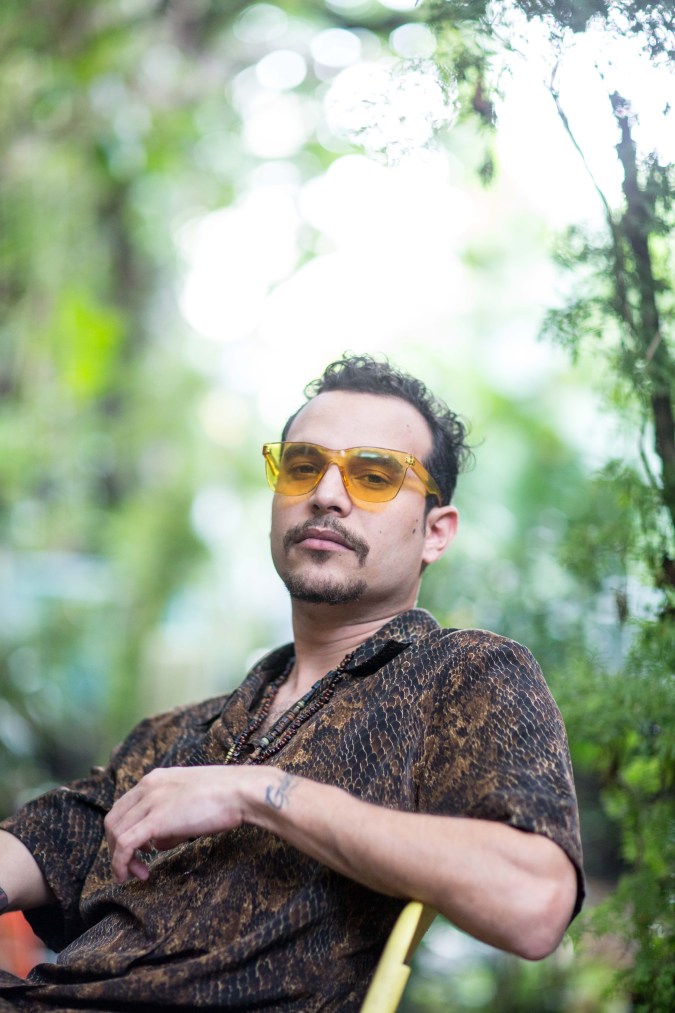
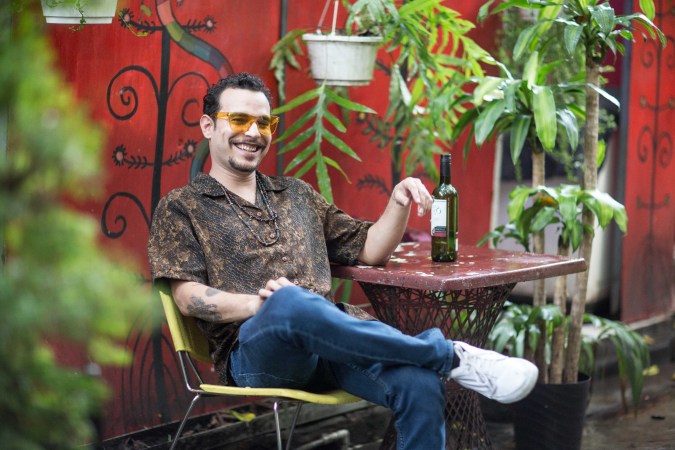
On “El Mosquitero,” perhaps the record’s most intriguing song, Oriach uses psychedelic cumbia to tell a mystical story about a family heirloom. “I grew up in my grandmother’s house, in La Vega,” he says. “At one point I went to live in the U.S., in New Jersey for about a year, and I remember when I got back she’d moved to Miami, but left her mosquitero hanging over my bed. A few days later, someone removed the mosquitero and that same week I fell ill with dengue.” Oriach wrote the song while recovering from the painful disease – usually contracted via mosquito bite – as a loving tribute to the family matriarch. The song is punctuated by the incantation “¡zafa, brujería!,” alluding to the net’s physical and supernatural powers of protection.
But Riccie Oriach isn’t only about surreal dreamscapes and hallucinations. Viaje al Infinito also showcases the singer’s romantic side, a turn that surprised even him. “The first songs that I specifically wrote for this project were ‘La Dueña’ and ‘La Flor,’ and since I couldn’t figure out a way to make them sound punk or rock, I let them just be romantic,” he reflects with a chuckle. “I was a bit uneasy about taking that direction because it wasn’t the image I necessarily wanted to project, but people liked the songs and I felt strongly about them so I decided they needed to stay on the record.”
Oriach’s fresh approach has attracted the attention of local audiences and curators. He’s booked shows across the island and made appearances at buzzy new festivals like Isle of Light and Pineapple Ball. But he still loves el campo and performing for people in more rural corners of the country, hoping his sonic adventurousness will inspire the next generation to take more risks and break from trends. “I would like the artists coming up to have more tools and to keep an open mind,” he says. “I’m not saying you have to make music like mine, but acts like MULA, El Gran Poder de Diosa, Marimba, Yasser Tejeda and many others are doing some great work.” Oriach’s skill as an expert storyteller and observer of the day-to-day reality of the Dominican experience makes him a promising young voice on the island’s burgeoning indie scene.
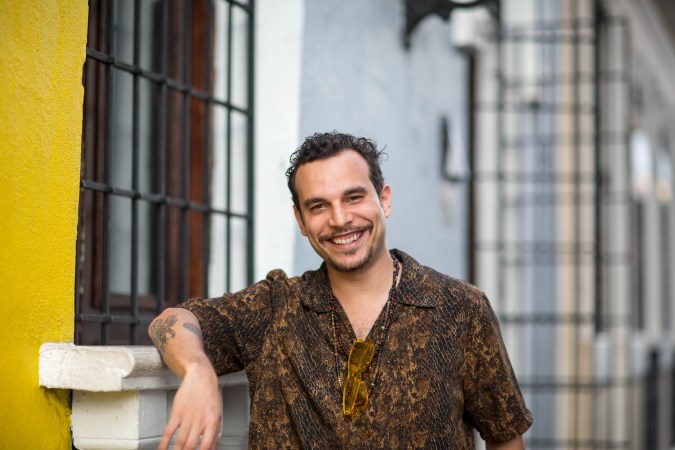
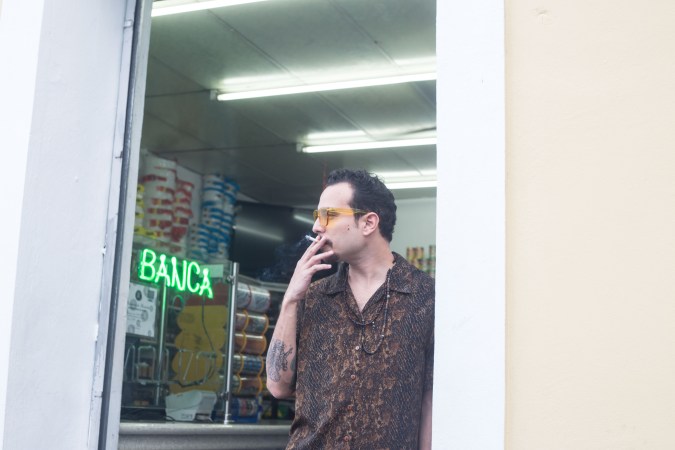
Win a pair of tickets to see Riccie Oriach at #DominicanSounds2018 on June 8th.




